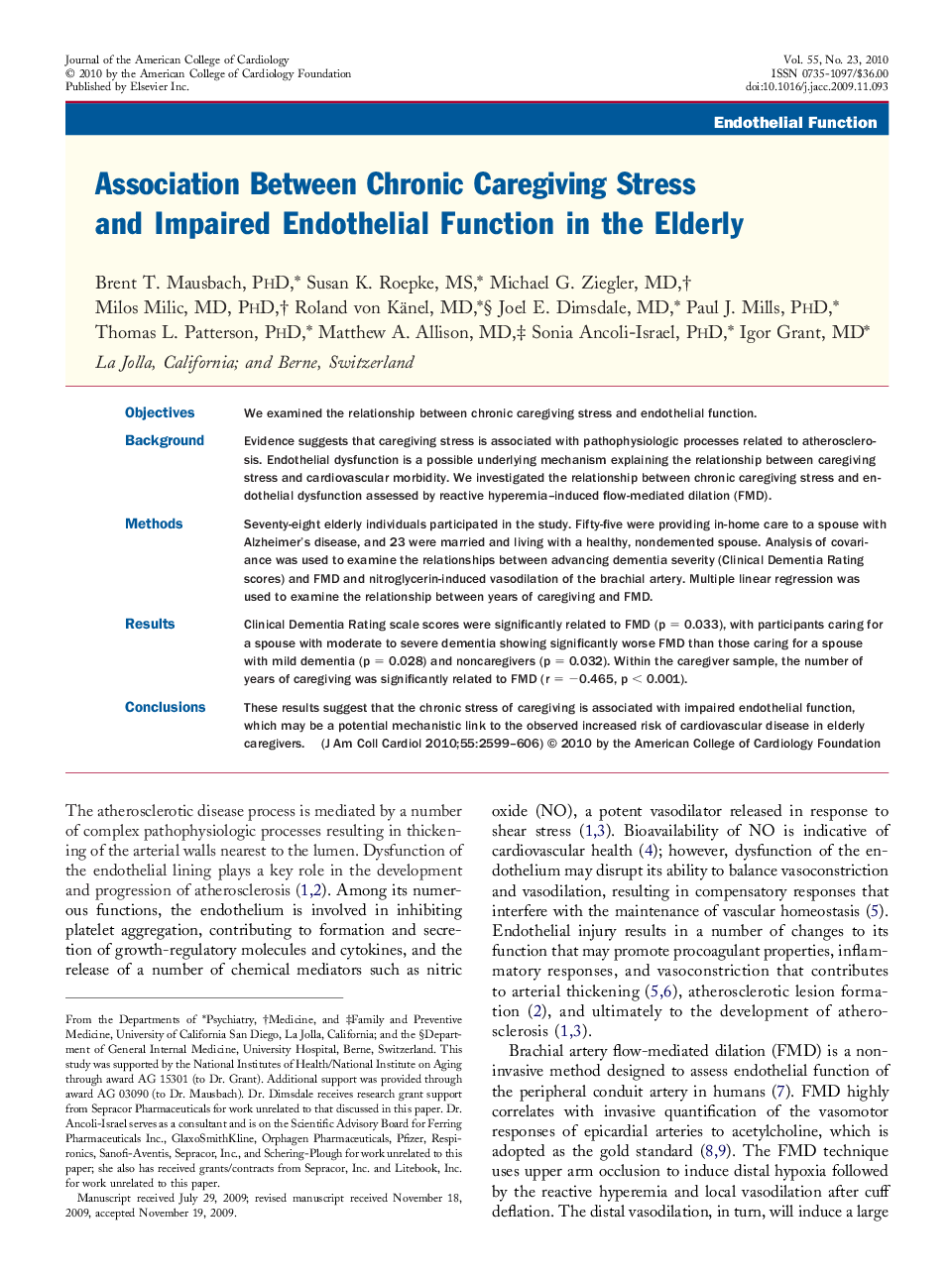| Article ID | Journal | Published Year | Pages | File Type |
|---|---|---|---|---|
| 2950858 | Journal of the American College of Cardiology | 2010 | 8 Pages |
ObjectivesWe examined the relationship between chronic caregiving stress and endothelial function.BackgroundEvidence suggests that caregiving stress is associated with pathophysiologic processes related to atherosclerosis. Endothelial dysfunction is a possible underlying mechanism explaining the relationship between caregiving stress and cardiovascular morbidity. We investigated the relationship between chronic caregiving stress and endothelial dysfunction assessed by reactive hyperemia–induced flow-mediated dilation (FMD).MethodsSeventy-eight elderly individuals participated in the study. Fifty-five were providing in-home care to a spouse with Alzheimer's disease, and 23 were married and living with a healthy, nondemented spouse. Analysis of covariance was used to examine the relationships between advancing dementia severity (Clinical Dementia Rating scores) and FMD and nitroglycerin-induced vasodilation of the brachial artery. Multiple linear regression was used to examine the relationship between years of caregiving and FMD.ResultsClinical Dementia Rating scale scores were significantly related to FMD (p = 0.033), with participants caring for a spouse with moderate to severe dementia showing significantly worse FMD than those caring for a spouse with mild dementia (p = 0.028) and noncaregivers (p = 0.032). Within the caregiver sample, the number of years of caregiving was significantly related to FMD (r = −0.465, p < 0.001).ConclusionsThese results suggest that the chronic stress of caregiving is associated with impaired endothelial function, which may be a potential mechanistic link to the observed increased risk of cardiovascular disease in elderly caregivers.
